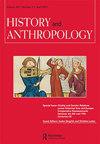Graduate attributes, state policy, and Islamic preaching in Indonesia
IF 0.4
2区 历史学
Q3 ANTHROPOLOGY
引用次数: 0
Abstract
ABSTRACT The development of state institutions for the management and administration of Islam has enriched the range of Islamic authorities in Indonesia, with distinctive effects for public Islam. The article examines the effects of an Indonesian policy decision of 1975 that was intended to develop specific graduate attributes – ‘modernity, openness and critical thought’ – in graduates of Islamic post-graduate study. It was decreed that Islamic graduates would be sent to post-graduate programmes at universities in the West, altering a policy setting that had previously favoured venerable sites of Islamic learning in the Middle East. The Ministry of Religion associated sites of post-graduate learning in the West with graduate attributes of openness and critical thought, and perceived that these attributes were necessary for the development of a cohort of technical experts with competency to observe and analyse Islam in Indonesian populations. Article problematizes this notion of graduate attributes in the religious sphere, noting their novelty in comparison with competencies required of Islamic leaders in Indonesian communities (connectedness, affirmation of tradition, ritual expertise, etc). Attributes of ‘openness and critical thought’ position technical experts as critical observers of other segments in Indonesian Islamic society, such as Indonesia’s popular preachers, many of whom are trained in sites of Islamic learning in the Middle East. In Indonesia’s contemporary Islamic public sphere, such technical experts, many of whom were trained in Western social science departments, maintain a critical distance from Indonesia’s popular preachers, the majority of whom (ironically) received religious training in sites of learning in the Middle East.印尼的毕业生属性、国家政策和伊斯兰教布道
本文章由计算机程序翻译,如有差异,请以英文原文为准。
求助全文
约1分钟内获得全文
求助全文
来源期刊

History and Anthropology
Multiple-
CiteScore
1.80
自引率
0.00%
发文量
41
期刊介绍:
History and Anthropology continues to address the intersection of history and social sciences, focusing on the interchange between anthropologically-informed history, historically-informed anthropology and the history of ethnographic and anthropological representation. It is now widely perceived that the formerly dominant ahistorical perspectives within anthropology severely restricted interpretation and analysis. Much recent work has therefore been concerned with social change and colonial history and the traditional problems such as symbolism, have been rethought in historical terms. History and Anthropology publishes articles which develop these concerns, and is particularly interested in linking new substantive analyses with critical perspectives on anthropological discourse.
 求助内容:
求助内容: 应助结果提醒方式:
应助结果提醒方式:


